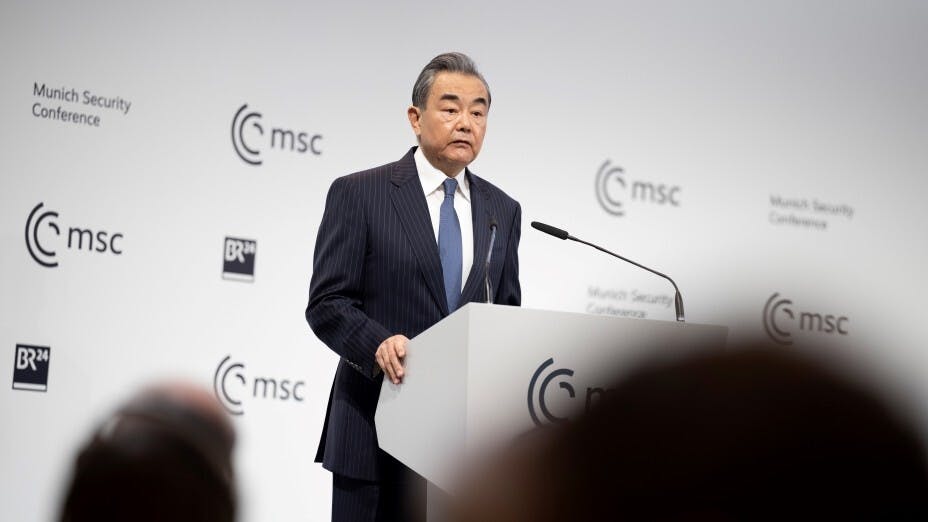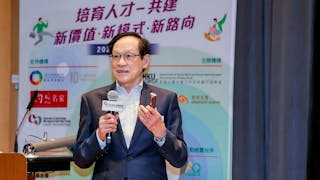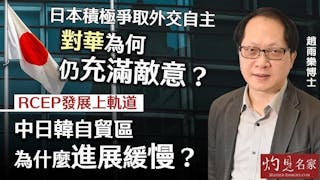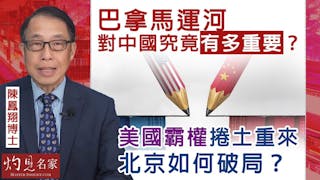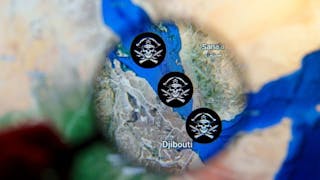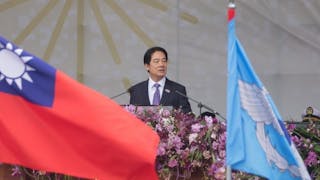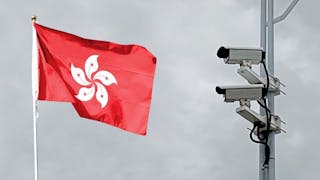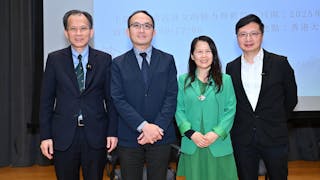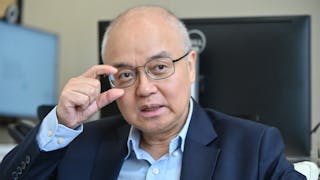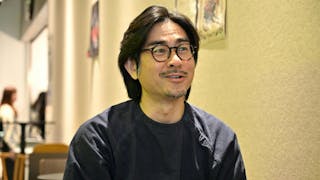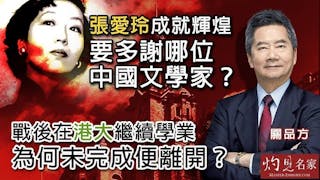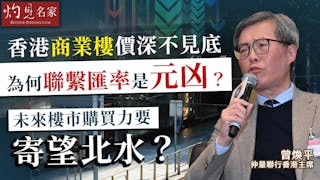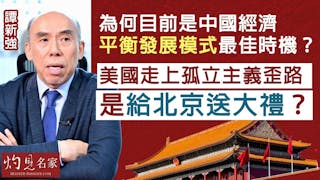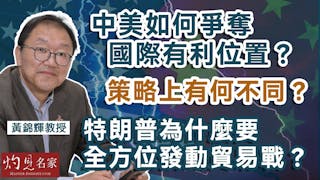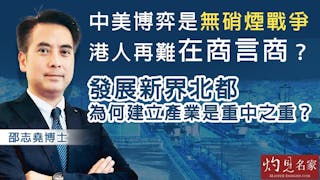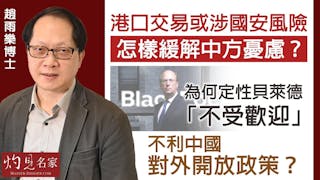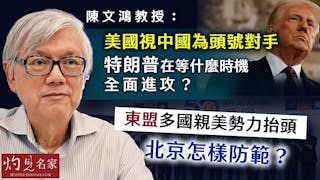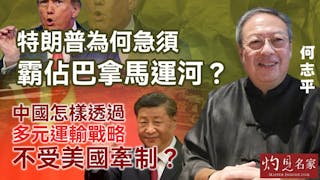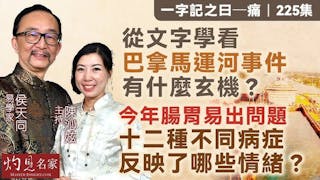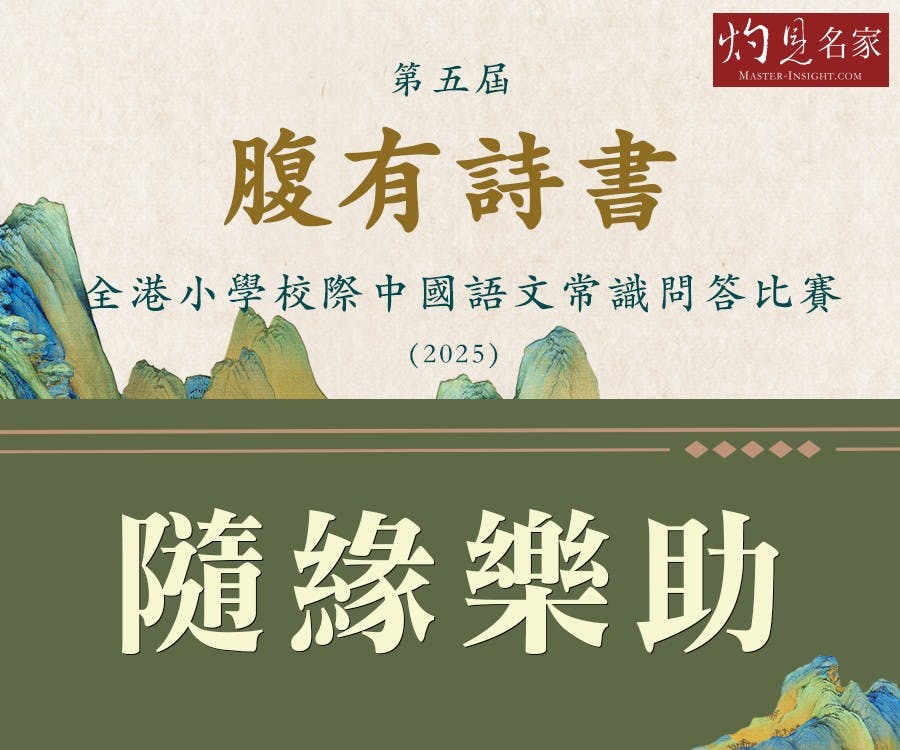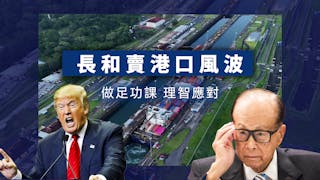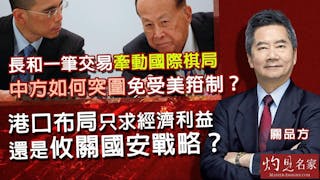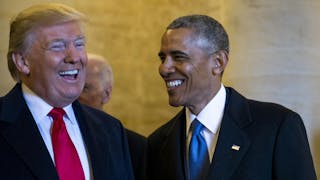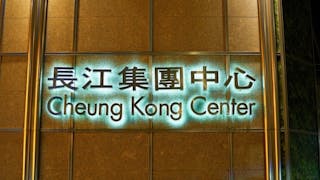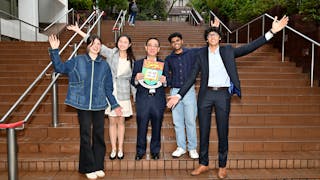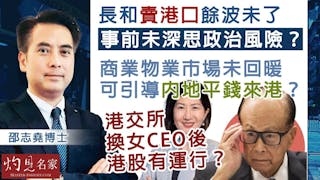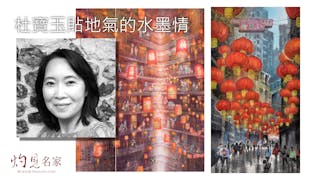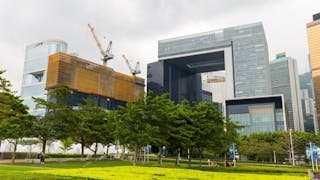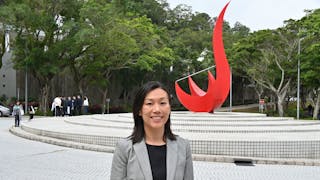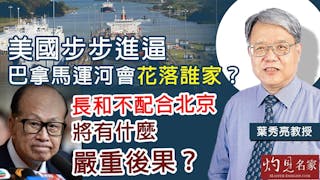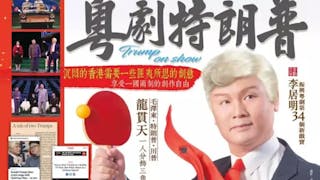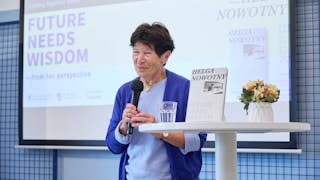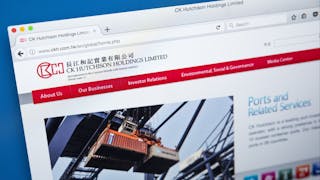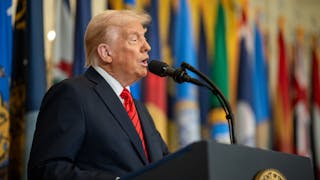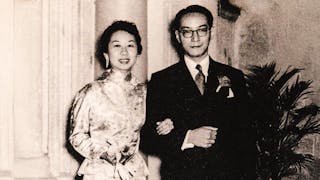中共外事工作委員會辦公室主任、中共中央政治局委員王毅此行訪問歐洲,不僅對中國對歐外交政策,而且對俄烏衝突都具有重要意義。
2月15日,王毅在巴黎會見法國總統馬克龍。雙方就加強雙邊合作、維護多邊主義、處理俄烏衝突等問題進行了討論。王毅告訴馬克龍,中方願同法方加強雙邊高層交往,發展中歐關係,為推動國際合作作出貢獻。
重申公正立場 致力勸和促談
馬克龍表示,在日益複雜的國際形勢下,法中應攜手維護穩定,堅持多邊主義,反對集團對抗,避免世界分裂。他又對王毅說,法方希望加強兩國在氣候變化、生物多樣性、海洋保護等領域的合作。
王毅強調,中國高度重視法國作為獨立自主國家的地位,願與法方共同探討政治解決方案,實現俄烏衝突停火。熱衷於與法國合作,以和平解決俄烏衝突。
在會見馬克龍時,王毅補充說,在俄烏衝突問題上,中方堅持客觀公正立場,始終致力於勸和促談。
王毅此次法國之行意義重大,因為法國一直奉行相對獨立的外交政策。法國對俄烏衝突持相對中立態度,對中國也是如此,但批評者和對手則認為中國更「親俄」。
王毅此次歐洲之行將在俄羅斯結束,暗示他或許會與俄羅斯談論維護地區和世界和平的重要性,並共同努力在俄烏衝突中取得可能的突破。
在法國總統馬克龍計劃今年4月訪問北京之前,王毅在法國會見了外交部長凱科隆納。
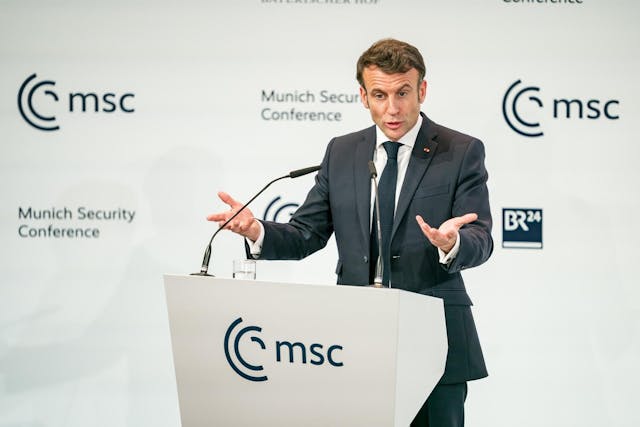
防疫即將完結 呼籲重啟交往合作
在羅馬,王毅會見了意大利總理梅洛尼,後者是一位於去年10月上任並採取親烏克蘭立場的政治家。
北京駐法國大使盧沙野接受《環球時報》專訪時表示,中國與俄羅斯的友好關係,使中歐關係「遇到不少困難」。他說:「俄羅斯和歐盟都是國際舞台上的重要力量,也都是中國的重要合作夥伴。對於我們來說,中俄關係、中歐關係完全可以並行不悖,這也是我們主權國家的權利。」
中國駐歐盟大使傅聰質疑西方所謂烏克蘭「全面勝利」的說法。他表示,「坦白說,我們相當擔心這場衝突可能惡化」,「我們不認為僅提供武器能真正解決問題」,「我們相當擔心有關在戰場上贏得一場全面勝利的討論」。
王毅訪歐恰逢法國和歐盟解除對中國大陸遊客的限制,這是中歐關係回暖的一個好兆頭。王毅對法方此舉表示歡迎,稱這有利於人員交流與合作。
在中國,國家主席習近平表示,中國已經取得了抗擊新冠病毒及其變種的勝利,現在注意力集中在恢復經濟方面。
2月16日,王毅會見意大利副總理兼外長塔亞尼。王毅說,中國成功控制疫情,經濟強勁復甦,中外人員往來有序恢復。他呼籲兩國全面重啟各領域交往合作。
王毅表示,2019年中意簽署共建「一帶一路」合作文件,極大提升了雙邊關係的戰略水平。他表示,中方願進口更多意優質產品,支持意大利企業擴大在華市場份額,希望意方為中方企業提供公平、透明、非歧視的營商環境。
王毅又表示,中方重視意方在國際舞台的地位和影響,願同意方共同維護聯合國核心地位,維護以《聯合國憲章》宗旨為基礎的國際關係準則,共同倡導和踐行多邊主義,推動國際關係民主化和經濟全球化。
塔亞尼表示,意方期待同中方盡快舉行兩國政府委員會第11次聯席會議和經濟合作混委會會議,加強各領域互利合作,促進相互投資、擴大貿易規模。
西方敦促俄方重回談判桌
王毅強調,中方在烏克蘭問題上致力於勸和促談。他表示,形勢愈是複雜,愈需要堅持政治外交努力,尋找各方都能接受的解決辦法。
塔亞尼和王毅談到了在印尼二十國集團會議期間,梅洛尼總理應習近平主席邀請訪華的籌備情況。梅洛尼稱2019年諒解備忘錄(MoU)是「一個大錯誤」。該諒解備忘錄將於2024年3月到期,但可能會在2023年底自動續期。
然而,在王毅與塔賈尼會面之前,這位意大利外長表示「現在談論有關一帶一路的協議為時尚早」,因為「還有其他更迫在眉睫的事情」。
從實際角度看,經貿對中意關係很重要。習近平去年11月在印尼峇里島G20會議上宣布了一項重要決定:到2035年,購買至少250架意大利萊昂納多和法國空中巴士生產的支線客機。
關於俄烏戰爭,塔亞尼最近表示:「俄羅斯在烏克蘭所做的事情絕不能在其他地方重演」,台灣「必須維持現狀」。意大利似乎採取了更親烏克蘭和更親台灣的立場──這可能會使意大利與中國的關係緊張。
有趣的是,據傳媒報道,塔亞尼和馬克龍總統都對王毅表示,中國應對俄羅斯施加更大壓力,促使俄方回到談判桌尋求解決俄烏衝突的辦法。
2月24日將是俄羅斯入侵烏克蘭一周年紀念日。據報道,王毅表示習近平當天將發表「和平演說」。果如是,中國似乎熱衷於在俄烏衝突中扮演中間人的角色。
2月17日,王毅在慕尼黑會見德國總理朔爾茨。王毅對朔爾茨表示:「中國始終站在和平一邊,致力於勸和促談,主張盡快停火止戰。希望德方為推動局勢降溫發揮建設性作用。」
就在王毅會見總理之前,中國駐聯合國代表張軍在安理會發表講話,呼籲俄羅斯同烏克蘭盡快舉行直接對話談判停火。
王毅還在慕尼黑安全會議期間會見了德國外長貝爾伯克。王毅期待會議會議發出和平的聲音,形成合作的共識,共同維護多邊主義,維護《聯合國憲章》。貝爾伯克表示,堅持「一個中國」政策,希望雙方進一步密切經貿往來,加強應對氣候變化等各領域交流合作。
關於俄烏衝突,王毅表示,中方不會放棄勸和促談的努力。
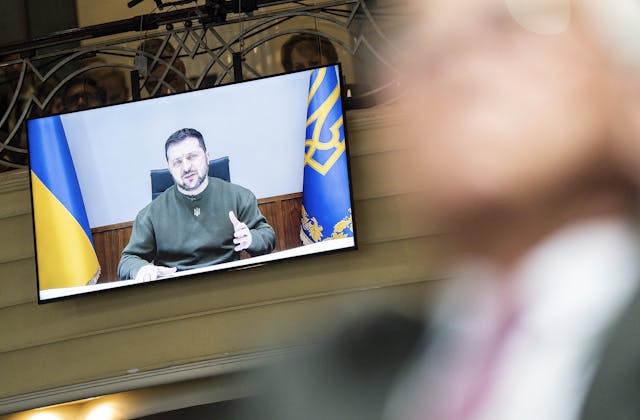
中歐關係或會出現好轉
王毅此次歐洲之行具有多方面的外交意義。
首先是在中美關係持續緊張的情況下,中歐關係出現好轉。中美關係不僅受到台灣問題的影響,還受到美國擊落和處理飄浮到美國領空的中國氣球的爭議影響,而中歐關係的特點是有可能在這一問題上進行微妙的合作,尋求和平解決俄烏衝突,這是王毅此行強調的一個重點。
問題的關鍵在於,烏克蘭和美國及其盟友是否會接受烏克蘭可能不得不放棄其東部部分領土給俄羅斯的解決方案──俄方可以接受,但烏方至今拒絕,並將這種舉動視為「投降」的行為。在烏克蘭民族主義者看來,他們必須捍衛烏克蘭的每一寸領土,因為首先入侵烏克蘭的是俄羅斯。因此,烏克蘭與俄羅斯之間的會談目前仍難以取得真正突破;除非雙方都放低姿態,否則不可能找到烏克蘭民族主義者和俄羅斯擴張主義者都能接受的簡單解決方案。
其次,中國和意大利是2020年上半年首批受到第一波新冠疫情影響和受害的國家。因此,王毅訪問意大利具有重要意義,因為兩國現在正在擁抱疫情結束及加強雙邊合作的前景。儘管王毅希望2019年的諒解備忘錄能夠延續,但2024年諒解備忘錄到期後,意方將如何以巧妙的外交方式處理中意關係,還有待觀察。
第三,在可能調解俄烏衝突方面,中國與法國的關係仍然是最有希望的。由於兩國都採取相對獨立的外交政策,不受美國影響下盟友的影響,中國和法國可以在制定俄烏衝突的可能解決方案方面發揮關鍵作用。
第四,中德關係依然融洽,兩國和中法關係一樣,不僅可以在雙邊關係上,也可以在尋求和平解決俄烏戰爭的方式上進行更多合作。德國的一個中國政策正在加強中德關係互信。不過,最近向烏克蘭提供豹式坦克,表明德國堅定地站在烏克蘭一邊。因此,德國可能不得不更多地依賴中國作為更有效的中間人,來調解俄羅斯和烏克蘭之間的衝突。
總之,在中美關係因氣球爭議、台灣、科技競爭和意識形態衝突等一系列因素而緊張之際,王毅訪歐具有外交意義。尋求和平解決俄烏衝突已成為王毅會見歐洲國家領導人的不變主題。中國似乎急於扮演中間人的角色,但它或許正在尋找一個所有利益相關者都能接受的解決方案──這在當前是一項艱鉅的任務。然而,至少目前的氣氛是強調和平與對話的。王毅訪問意大利標誌着從2020年初開始的中國和意大利疫情結束,但由於對俄烏戰爭和台灣的不同態度,中意關係在政治上處於較緊張狀態。另一方面,中國在尋求和平解決正在進行的俄烏戰爭方面,與法國有許多共同的價值觀,兩國完全有能力成為中間人。如果中歐關係處理得當,將可能為當前的俄烏衝突帶來更多和平的機會。
Wang Yi’s visit to Europe and its diplomatic significance
The visit by Wang Yi, the director of the Office of the Chinese Foreign Affairs Commission and a member of the Politburo of the Communist Party of China, has significance for not only China’s foreign policy toward Europe but also the Russo-Ukrainian conflicts.
On February 15, Wang Yi met the French President Emmanuel Macron in Paris. They discussed how both sides can strengthen bilateral cooperation, uphold multilateralism and handle the Russia-Ukraine conflict.
Wang Yi told Macron that China is willing to enhance high-level bilateral exchanges with France, develop China-EU relations, and make contributions to the promotion of international cooperation.
Macron said that amid the increasingly complicated international situation, France and China should work together to maintain stability, uphold multilateralism, oppose bloc confrontations, and prevent the world from being broken apart.
Macron told Wang that France and China should cooperate more in the areas of climate change, biodiversity, and maritime protection work.
Wang emphasized that China attached great importance to France as an independent nation with autonomy, and as such, China would like to work with France to explore political solutions to achieve ceasefire in the Russo-Ukrainian conflicts – important gesture made by Wang to show that China is keen to work with France to bring about a peaceful solution in the Russo-Ukrainian conflicts.
During the meeting with Macron, Wang Yi added that, on the Russo-Ukrainian conflicts, China has been adopting a relatively “objective and impartial” attitude while promoting the importance of peace and dialogue.
Wang’s trip to France was important as France has been adopting a relatively independent foreign policy. France is relatively neutral toward the Russo-Ukrainian conflicts, as with China which however was perceived by its critics and adversaries as far more “pro-Russian.”
Wang Yi’s tour of Europe would end in Russia, implying that he would perhaps talk to Russia about the importance of maintaining regional and global peace, and working together to achieve a possible breakthrough in the Russo-Ukrainian conflicts.
In France, Wang met Foreign Minister Catherine Colonna, ahead of President Macron’s expected visit to Beijing in April.
In Rome, Wang met Italian Prime Minister Giorgia Meloni, a politician who took office in October and who took a pro-Ukraine stance.
Lu Shaye, Beijing’s ambassador to France, told Global Times that China’s friendly relations with Russia made the Sino-EU relations “a bit difficult”. He said: “Both Russia and the EU are important forces on the international stage, and both are important partners of China. For us, China-Russia relations and China-EU relations can go hand in hand, and this is also the right that a sovereign state has to decide.”
The Chinese envoy to Brussel, Fu Cong, has criticised those people who called for a “total” victory for Ukraine. He said: “Frankly speaking, we are quite concerned about the possible escalation of this conflict. And we don’t believe that providing weapons will actually solve the problem. We are quite concerned about people talking about winning a complete victory on the battlefield.”
Wang’s visit to Europe coincided with the lifting of restrictions in France and EU on mainland Chinese travellers – a good sign in warming the Sino-EU relations. Wang welcomed the French move, saying it is conducive to personnel exchange and cooperation.
In China, President Xi Jinping said that the country had achieved a victory over the combat against Covid-19 and its variants. Attention is now focusing on economic recovery.
On February 16, Wang met Italian Deputy Prime Minister and Minister of Foreign Affairs Antonio Tajani.
Wang said that China brought COVID-19 and its variants under control and achieved a strong economic recovery and orderly people-to-people exchanges with other countries. He urged the two countries to resume exchanges and cooperation in various aspects.
According to Wang, the signing of a Memorandum of Understanding to advance the joint construction of the Belt and Road between China and Italy in 2019 elevated their bilateral relations. He said that China is ready to import more products from Italy, support Italian companies in expanding their share in the Chinese market, and hoped that Italy would create a fair and transparent business environment for Chinese companies. Wang added that China values Italy’s status and influence in the international arena and it is ready to work with Italy to uphold the norms in international relations based on the UN Charter’s purposes and principles, to advocate multilateralism, and to promote democracy in international relations and economic globalization.
Italy will hold the 11th Joint Meeting of Italy-China Government Committee and the meeting of the two countries’ Joint Commission for Economic and Trade Cooperation, thereby strengthening mutual cooperation in various areas, especially in the promotion of trade and investment.
Wang emphasized that China is committed to promoting peace talks in the Russo-Ukrainian conflicts. Yet, he said that the more complicated the situation is, the more necessary it is to make politico- diplomatic efforts to find a solution acceptable to all stakeholders.
Tajani and Wang talked about the preparations for Prime Minister Giorgia Meloni’s trip to Beijing, following President Xi Jinping’s invitation during the G20 meeting in Indonesia. Meloni had called the 2019 Memorandum of Understanding (MoU) “a big mistake.” The MoU will expire in March 2024, but it will perhaps be automatically renewed at the end of 2023.
Yet, before the Wang-Tajani meeting, the Italian Foreign Minister said that it was “still premature to talk about the Silk Road agreement” as “there are other urgencies and emergencies.”
From the practical side, doing business is important for the Sino-Italian relations. An important decision was announced by President Xi in the November G20 meeting in Bali: the purchase by 2035 at least 250 regional transport airplanes owned by Italy’s Leonardo and France’s Airbus.
On the Russo-Ukrainian war, Tajani said recently: “there must be no temptation to do what Russia has done in Ukraine elsewhere,” and Taiwan “must remain as it is.” It looks as if Italy adopts a more pro-Ukrainian and more pro-Taiwan position – position that could strain the Italian relations with China.
Interestingly, the media reported that both Tajani, and President Macron, told Wang Yi that China would have to exert more pressure on Russia to come to the negotiating table and look for a solution to the Russo-Ukrainian conflicts.
February 24 will mark the anniversary of the Russian invasion of Ukraine. It is reported that Wang pointed to a new speech to be delivered by President Xi Jinping on that day, emphasizing the importance of peace. If so, China appears to be keen to play the role of a middleman in the Russo-Ukrainian conflicts.
On February 17, Wang Yi met the German Chancellor Olaf Scholz in Munich. Wang told Chancellor Scholz that “I hope Germany will play a constructive role in reducing the escalation. We are making efforts for reconciliation and advancing peace negotiations.”
Just before Wang’s meeting with the Chancellor, coincidentally, Zhang Jun, China’s representative to the UN, delivered a speech at the Security Council and called on the authorities of Russia and Ukraine to cease fire and start peace negotiations as soon as possible.
Wang also met German Foreign Affairs Minister Annalena Baebock during the Munich Security Conference. Wang expects the conference to speak out for peace, support multilateralism and uphold the UN Character. Baebock said that Germany supports the one-China policy and that both sides would strengthen cooperation in all areas, including trade and climate change.
On the Russo-Ukrainian conflicts, Wang said that China would not abandon its efforts at promoting peace talks.
Wang’s visit to Europe is diplomatically significant in several aspects.
First, China-Europe relations has taken a turn for the better amid the ongoing tense Sino-US relations. While the Sino-US relations have been affected by the controversies over not only Taiwan but also the US handling and shooting of the Chinese balloon that intruded into the US airspace, the Sino-European relations are characterized by the possibility of a subtle cooperation over the quest for a peaceful solution over the Russo-Ukrainian conflicts – a feature that has been emphasized in Wang Yi’s visit.
The crux of the problem is whether Ukraine and the US and their allies would perhaps accept a solution in which Ukraine would likely have to abandon some of its eastern territories to Russia – a position that would be acceptable to Russia but so far rejected by the Ukrainian side which perceives such a move as a “surrender.” From the perspective of the Ukrainian nationalists, they have to defend every inch of the Ukrainian territory as it was Russia which invaded Ukraine in the first place. As such, a real breakthrough in the talks between Ukraine and Russia remains currently difficult; an easy solution acceptable to the Ukrainian nationalists and the Russian expansionists is impossible unless the two sides moderate their positions further.
Second, China and Italy were among the first two countries which were heavily affected and victimized by the first wave of Covid-19 in the early half of 2020. As such, Wang’s visit to Italy had significant implications in that the two countries are now embracing the end of Covid-19 and its variants with the prospects of enhancing bilateral cooperation. While Wang hopes for the continuation of the 2019 Memorandum of Understanding, it remains to be seen how the Italian side will deal with Sino-Italian relations in a skilful and diplomatic manner when the MoU will expire in 2024.
Third, China’s relations with France remain the most promising in terms of a closer cooperation in the possible mediation of the Russo-Ukrainian conflicts. As both countries adopt a relatively independent foreign policy autonomous from the allies under the US influence, China and France can play a pivotal role in shaping a possible solution to the Russo-Ukrainian conflicts.
Fourth, the Sino-German relations remain cordial and the two countries, like the Sino-French relations, may cooperate more in terms of not only their bilateral relations but also the quest for a peaceful solution to end the war between Russia and Ukraine. Germany’s one-China policy is strengthening mutual trust in Sino-German relations. However, the recent provision of the Leopard tanks to Ukraine shows that Germany is firmly on the side of Ukraine. As such, Germany may have to rely more on China as a more effective middleman in mediating the conflicts between Russia and Ukraine.
In conclusion, Wang Yi’s visit to Europe is diplomatically significant at a time when Sino-US relations are strained by a whole range of factors, including the balloon controversy, Taiwan, technological competition and ideological conflicts. The quest for a peaceful solution to the Russo-Ukrainian conflicts has become a constant theme in Wang’s meetings with the European state leaders. China appears to be eager to play the role of a middleman, but it is perhaps looking for a solution acceptable to all stakeholders – a difficult task at this moment. At the very least, however, the present climate is prevailed by the emphases on peace and dialogue. Wang’s visit to Italy marked the end of the Covid-19 onslaught on both China and Italy starting from early 2020, but Sino-Italian relations are politically strained by different attitudes toward not only the Russo-Ukrainian war but also Taiwan. On the other hand, China has been sharing common values with France in many aspects, and they are well positioned to be the intermediaries in the quest for a peaceful solution to the ongoing Russo-Ukrainian war. If Sino-European relations are handled tactfully and skillfully, they may present more opportunities of brining about peace in the ongoing Russo-Ukrainian conflicts.
原刊於澳門新聞通訊社(MNA)網站,本社獲作者授權轉載。網址:https://www.macaubusiness.com/opinion-wang-yis-visit-to-europe-and-its-diplomatic-significance/



